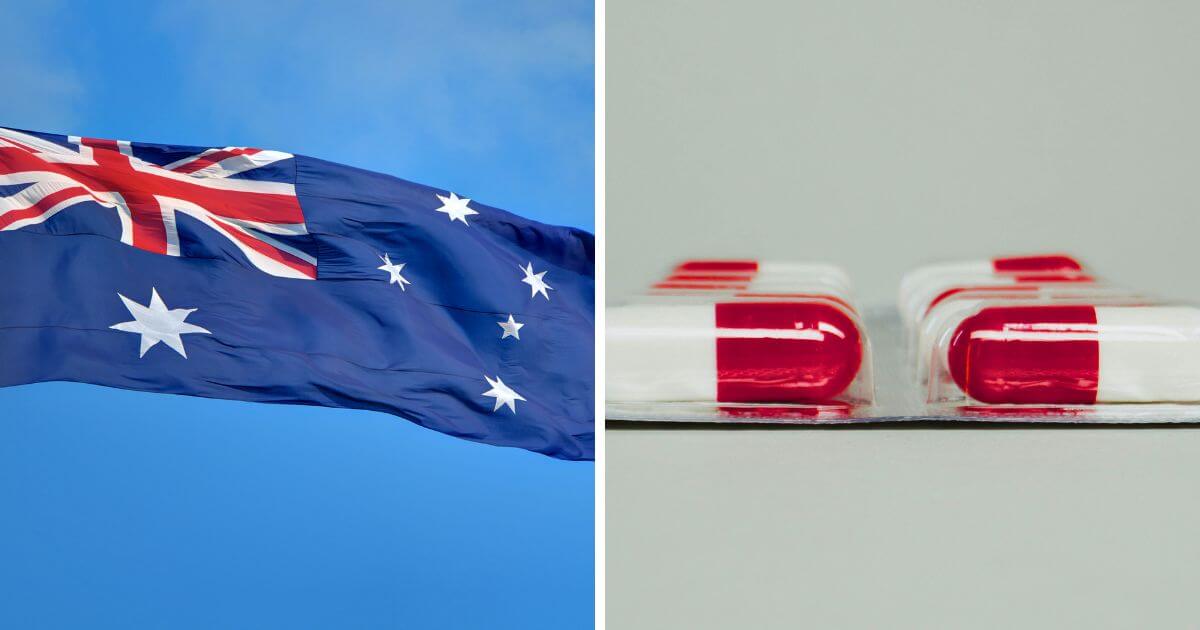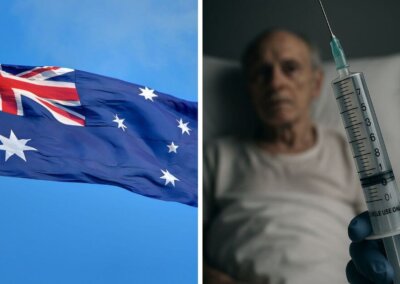A man in Queensland, Australia, has nearly died after allegedly taking his partner’s lethal drugs for an assisted suicide.
The couple allegedly joined a health worker in drinking shots of alcohol at Gold Coast University Hospital’s ‘Voluntary Assisted Dying’(VAD) unit before the woman used lethal drugs to end her life. The man then allegedly took the drugs his partner had just used and nearly died before being resuscitated with Naloxone, a drug used to reverse opioid overdoses, and was admitted to the hospital’s emergency department.
The incident again calls into question the safety of the assisted suicide law in Queensland, which came into force at the beginning of 2023, and permits the prescribing of lethal drugs to those who fulfil the eligibility criteria, and who can then self-administer these drugs at a time, place and date of their own choosing. The law also requires any unused drugs prescribed for assisted suicide to be returned to the appropriate authority within 14 days.
This is not the first time such an incident has occurred in Queensland. It was reported in September 2023, less than a year after the legislation had been introduced, that a man in Queensland ended his life using assisted suicide drugs intended for his wife.
According to local reports, after a woman was prescribed the lethal drugs and died before she was able to consume them, her elderly husband took the drugs himself. John Daffy, speaking on behalf of the Australian Care Alliance, said that the incident was “100 per cent predictable”. “We warned about this exact situation unfolding when all of these laws came in” he added.
The state health minister said the law that allowed this to happen would be examined, and the Government would decide whether it should be amended. “We will look at absolutely whether we need to strengthen the legislation about that 14-day turnaround for medication to be returned, which I suspect we will do”, she said.
Grave dangers remain with the Queensland law
Despite the state health minister’s words, these incidents suggest that grave dangers remain with the Queensland law. These dangers were highlighted by Queensland coroner David O’Connell in September 2024, who blasted the Queensland euthanasia laws as “inadequate to provide for medication safety and to prevent deliberate misuse”, and warned that “[f]urther calamity and heartbreak await for parents and families if nothing changes”.
The Gold Coast University Hospital incident suggests that O’Connell’s warning about the dangers of the laws has not been heeded, despite a Gold Coast Hospital and Health spokesperson saying the hospital is taking “additional steps” to “strengthen clinical hospital processes over and above the requirements of the voluntary assisted dying legislation”.
Contradicting Health Minister Shannon Fentiman’s claims that the legislation is “safe”, O’Connell, referring to the 2023 incident of the elderly husband taking his wife’s lethal drugs, said the laws “overwhelmingly favoured patient autonomy and this has led to an outcome which has caused very significant distress to the family and a life has been unnecessarily lost”.
Leadbeater’s safeguard claims heavily criticised
Just as Fentiman’s claims that the Queensland legislation is safe, Kim Leadbeater has also boasted about the safety of her Terminally Ill Adults (End of Life) Bill, repeatedly insisting that it contains the strongest safeguards in the world. However, these claims have been heavily criticised. Naz Shah, Labour MP for Bradford West, completely disagrees with Kim Leadbeater’s claims that she has “listened” to evidence to provide effective safeguards to her Bill. Shah commented “when there’s this narrative of ‘we have listened,’ no: that’s not true. The evidence is there in black and white. The biggest changes to the bill… all of these big-ticket items – the ones that have weakened it, in my opinion – have come from the bill sponsor”.
Shah added “[I]t’s just not fit for purpose”.
The Royal College of Psychiatrists (RCPsych) announced it “cannot support” the Bill, citing “many, many factors” that need addressing. The RCPsych said “With too many unanswered questions about the safeguarding of people with mental illness, the College has concluded that it cannot support the Bill in its current form”.
MPs share concerns about safeguards
Several MPs who either abstained or initially backed the Bill at Second Reading, but have now changed their minds, have also shared their concerns about safeguards. Explaining his reasons for changing his mind, Conservative MP Andrew Snowden complained that the Bill had “already been watered down from its original safeguards”, whilst Conservative MP Charlie Dewhirst said he “can’t support it in all good conscience” because “[t]here seems to be a lack of protections, for example, for people with autism. And it really feels to me that it’s far wider than we were assured it was going to be to start with”.
Liberal Democrat MP Steve Darling is now “marginally against” the assisted suicide Billl, due to concerns about a lack of safeguards and the broken health and care system, whilst Labour MP Karl Turner, who has changed his position from voting for the Bill to abstaining, said he would now vote against if he were “forced” to vote and if abstaining were not an option, also explaining that he was “worried” about “the safeguards in terms of judicial scrutiny”.
Spokesperson for Right To Life UK, Catherine Robinson, said “The terrible incident in Queensland illustrates one of the dangers of legalising assisted suicide and shows how so-called safeguards fail”.
“Kim Leadbeater has made dubious claims about safeguards, stating that her Bill contains the strongest safeguards in the world, which has been shown to be highly misleading and inaccurate. A number of MPs and organisations have highlighted the flaws and errors in her dangerous Bill”.
“MPs should take note of these concerns and vote against the Bill at Third Reading”.












